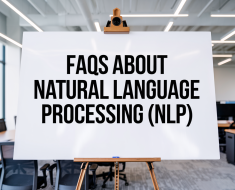
In recent years, the film industry has been undergoing a transformative change, driven by the increasing influence of artificial intelligence (AI). From scriptwriting to post-production, AI is reshaping how movies are developed, produced, and presented.
This post explores the growing role of AI in film development and how it’s revolutionizing the industry from script to screen.
The Evolution of AI in Film Development
AI’s journey in the film industry began with relatively simple applications, but it has quickly evolved into a complex and integral part of the filmmaking process. The days of AI being merely a tool for automating mundane tasks are long gone. Today, AI is involved in nearly every aspect of film development, from concept creation to audience engagement.
Scriptwriting: AI as a Creative Partner
One of the most exciting advancements in film development is AI’s role in scriptwriting. Traditionally, screenwriting was a solitary endeavor, often relying on the creativity and intuition of human writers. However, AI is now stepping into this creative space, offering new possibilities for storytelling.
AI tools like OpenAI’s GPT-4 and various other natural language processing models are capable of generating script ideas, dialogue, and even entire screenplays. These AI systems analyze vast amounts of data, including existing scripts and story structures, to generate coherent and engaging content. While AI-generated scripts still require human refinement, these tools can serve as valuable partners in the brainstorming and drafting phases.
For instance, AI can help writers overcome writer’s block by suggesting plot twists or character developments based on established narrative patterns. It can also assist in generating dialogue that matches the tone and style of the film, ensuring consistency throughout the screenplay.
Casting: AI-Driven Decisions
Casting is another area where AI is making significant inroads. Traditionally, casting decisions were made based on auditions, actor availability, and director preferences. Now, AI algorithms can analyze actor performances, audience reactions, and even social media trends to recommend the most suitable candidates for specific roles.
AI-driven casting platforms use machine learning to evaluate an actor’s past performances and predict their potential fit for a role. By analyzing factors such as screen presence, vocal tone, and audience engagement, these systems can provide valuable insights to casting directors, making the process more data-driven and efficient.
Pre-Production: AI in Planning and Visualization
Pre-production is a critical phase in film development, involving detailed planning and visualization. AI is increasingly being used to streamline this process, from location scouting to set design.
AI-powered tools can analyze scripts and generate visual storyboards, helping filmmakers visualize scenes before they’re shot. This not only saves time but also allows for more accurate planning of camera angles, lighting, and special effects. AI can also assist in location scouting by analyzing images and videos to suggest potential filming locations that match the script’s requirements.
Production: Enhancing Filmmaking Techniques
During production, AI is enhancing filmmaking techniques in several ways. One notable application is in camera technology. AI-powered cameras can automatically adjust settings such as exposure and focus based on real-time analysis of the scene. This ensures that shots are consistently high-quality, even in challenging lighting conditions.
AI is also being used to assist with special effects and visual effects (VFX). Traditional VFX work can be time-consuming and labor-intensive, but AI algorithms can automate many of these tasks. For example, AI can be used to generate realistic CGI elements or enhance existing VFX, reducing the workload for visual effects teams and speeding up the production process.
Post-Production: AI’s Role in Editing and Marketing
Post-production is where much of the magic happens, and AI is playing a growing role in this phase as well. Editing, in particular, has benefited from AI advancements. AI-powered editing tools can analyze footage and suggest cuts, transitions, and even music choices based on the desired tone and pacing of the film. This not only speeds up the editing process but also provides editors with new creative possibilities.
AI is also revolutionizing film marketing and distribution. By analyzing audience data and viewing patterns, AI can help studios tailor marketing campaigns to specific demographics. Predictive analytics can forecast a film’s potential success, guiding distribution strategies and promotional efforts.
The Future of AI in Film Development
As AI continues to evolve, its role in film development is expected to grow even further. We’re likely to see more sophisticated AI tools that can handle increasingly complex tasks, from advanced script analysis to real-time audience engagement.
However, it’s important to remember that AI is not a replacement for human creativity and intuition. Instead, it serves as a powerful tool that complements and enhances the filmmaking process. The best films will always be the result of a collaborative effort between human artists and AI technologies.
Conclusion
From script to screen, AI is reshaping the film industry in remarkable ways. Its growing role in scriptwriting, casting, pre-production, production, and post-production is transforming how films are created and presented.
As AI continues to advance, it will undoubtedly play an even more significant role in the future of filmmaking. Embracing these changes while maintaining the essence of human creativity is key to harnessing the full potential of AI in the film industry.
So, the next time you watch a movie, take a moment to appreciate the cutting-edge technology behind the scenes. AI is not just a tool; it’s a creative partner that’s helping to bring stories to life in ways we could only dream of a few years ago.





